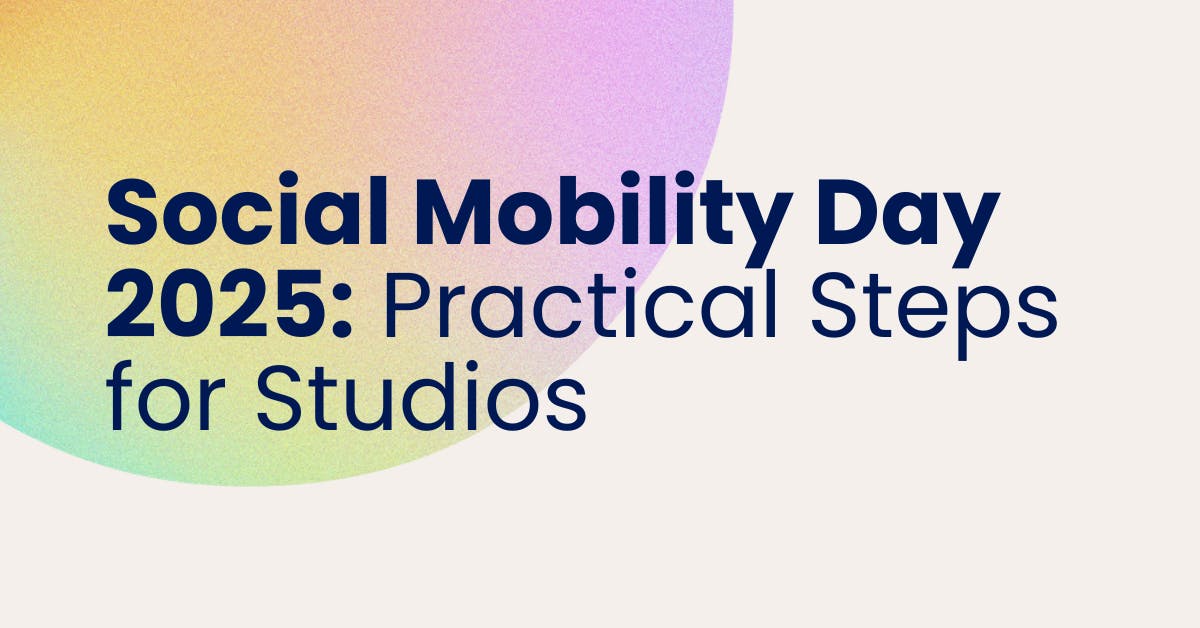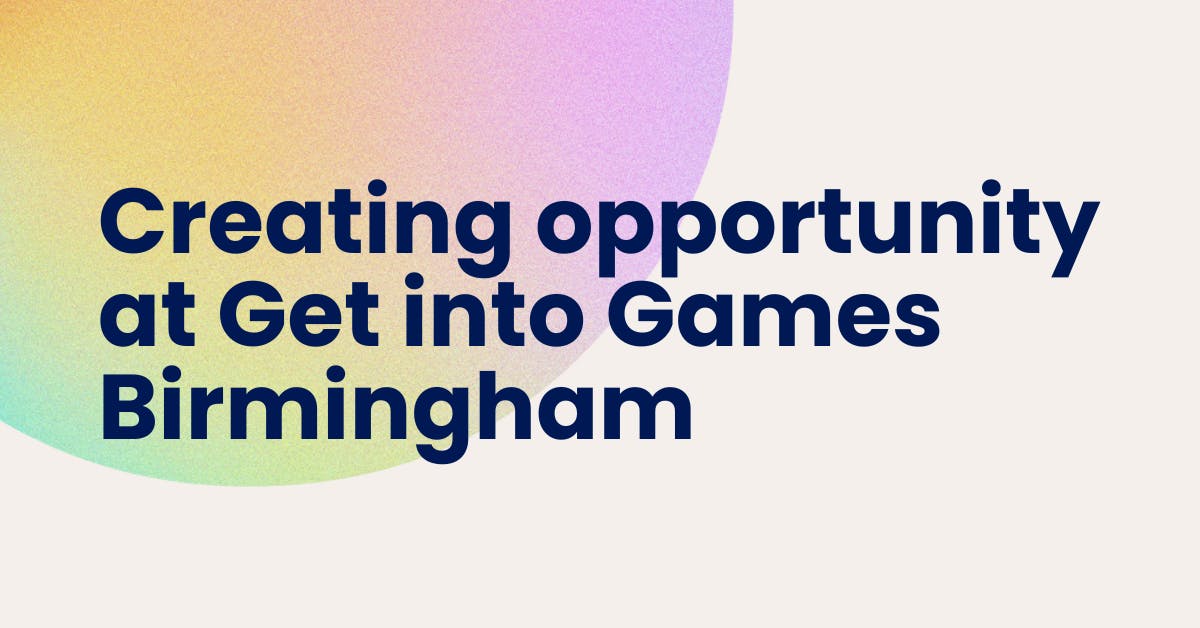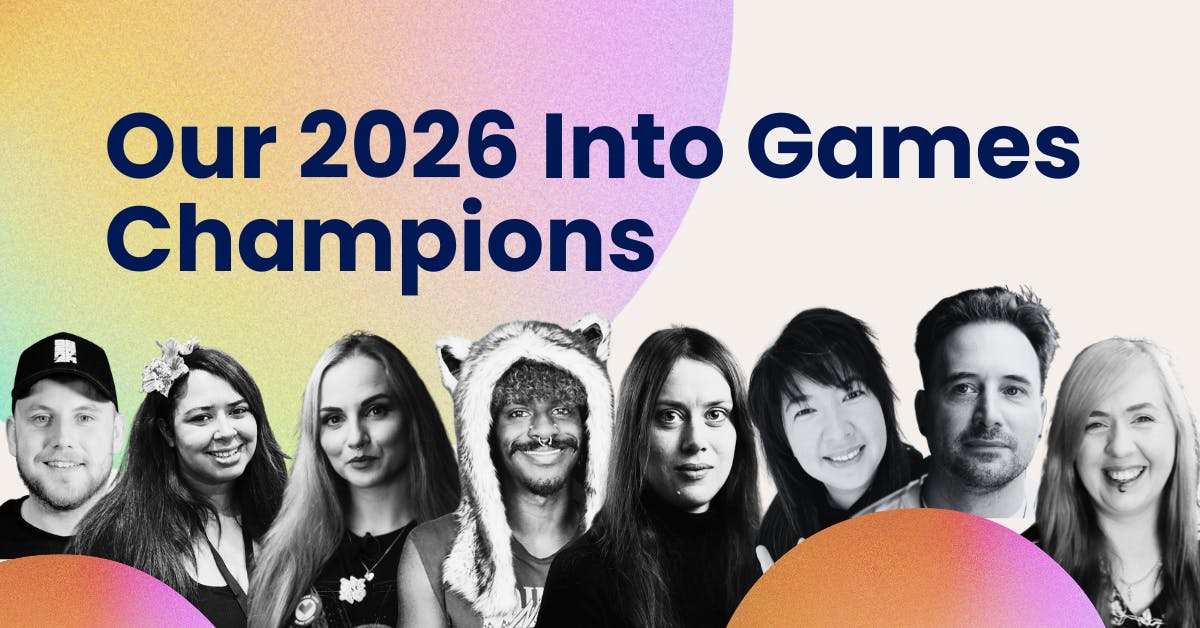
12 June 2025
8 Ways Games Studios Can Boost Social Mobility in the UK Sector

On Social Mobility Day this year, we have pulled together 8 practical ways your organisation can do to build a more socioeconomically rich sector based on the findings of our Difficulty Level report
1. Acknowledge the Problem
Socioeconomic background isn’t a protected characteristic under UK law, though we firmly believe it should be. That means it's often overlooked in internal and external DEI efforts. But ignoring class is a mistake.
Class is deeply intersectional. It cuts across race, gender, and geography, affecting the very people who often face the greatest barriers. A focus on social mobility is a focus on true diversity. If the games industry is serious about inclusion, it must take socioeconomic background seriously.
Right now, we’re failing. Just 13% of the UK games workforce comes from working-class backgrounds. You’re more likely to become a lawyer, architect, journalist, or even a politician than a games developer if you grew up working-class, and thats not acceptable.
This isn’t due to a lack of talent. Our 2024 Difficulty Level report shows that UK colleges and universities are filled with working-class students studying games. The pipeline is there, we just need to support it.
2. Start Asking the Right Questions
One of the simplest, highest-impact steps you can take is to include socioeconomic monitoring questions in your applications and onboarding processes. These questions are recommended by the UK Social Mobility Commission and provide the foundation for tracking and improving class representation in your business.
Here are three essential questions to include:
- What was the occupation of your main household earner when you were around 14?
- Were you eligible for free school meals at any point during your school years (if you finished school after 1980)?
- What type of school did you attend most between ages 11 and 16?
You can find the full recommended answer options in our Difficulty Level report (https://intogames.org/news/report-social-mobility-in-the-uk-games-sector-2024) or the Social Mobility Commission's Toolkit.
3. Celebrate Class Diversity Internally
Don’t treat socioeconomic background as a taboo subject. Make it part of your DEI conversations. Celebrate staff from working-class backgrounds. Share their stories. Create a culture where people feel safe and proud to bring their full selves to work, including their class identity.
4. Cover Key Costs for New Starters
For those from working-class or low-income backgrounds, the cost of entering the workplace can be a major barrier. Even simple things—like train tickets or laptops—can be deal-breakers.
Here are three easy ways to remove that stress:
- Cover travel costs for all in-person interviews
- Provide a company laptop if needed
- Offer relocation support for new hires
If you do any or all of these, make sure they are right up front of any job descriptions so its clear to see that you care about this as an employer.
5. Make Remote Work the Default
If you can’t offer full relocation packages, consider making your roles remote-first. Uprooting your life is expensive and emotionally taxing, especially if you're already financially stretched.
Take inspiration from Futurlab in Brighton, creators of Powerwash Simulator. Most of their 150+ staff are based across the UK, but the studio has retained its Brighton roots while fully decentralising. That flexibility supports social mobility and benefits everyone.
6. Build Relationships with Local Schools
Creating a more diverse industry starts early. Encourage your team to volunteer time in schools in deprived areas, particularly those with high levels of free school meals. These schools are often the most in need, and the least connected to the sector.
If you're not sure where to start, Into Games can help. Our free careers workbook (https://www.canva.com/design/DAGeCNzvG0k/Isz0TI5XZNPAG9jUQlHkWA/edit?utm_content=DAGeCNzvG0k&utm_campaign=designshare&utm_medium=link2&utm_source=sharebutton) is a great tool for running school sessions with impact and if you need support with connecting with local schools, get in touch.
7. Join the Into Games Boost Programme
Boost matches studios with exceptional working-class talent and pays up to 2 months’ wages, so you get a brilliant new team member at no cost.
There’s no obligation to hire long-term, just a chance to discover someone with real potential. To take part, you just need to:
- Be a registered UK company
- Pay staff through PAYE
- Provide a solid onboarding experience
Sign up to the second round of Boost here (https://forms.gle/ggUi7Hj47KBohPvY6)
8. Support Social Mobility While Rewarding Your Team
Into Games is a non-profit, and we fundraise a little differently. With Slow Game Club, you can support our work while giving your staff something fun and meaningful.
For just £39.99 per membership, your staff get a beautifully curated indie game in their inbox every month. It’s the perfect team reward, with purpose.
In 2024, with donation support, Into Games:
- Delivered 100+ workshops in schools with high free school meals provision
- Supported 30,000+ young people on their games career journey
- Ran 50+ career events in low-income areas
- Helped 50 people land their first job in games
- Shared weekly free resources for learners across the UK
Together, we can open the doors of our industry to those who’ve been shut out for too long.
Stay up to date
It's time to level up your inbox
Pick which newsletters you're interested in receiving, and customise further by specifying a discipline.
Join our mailing listTell me more






